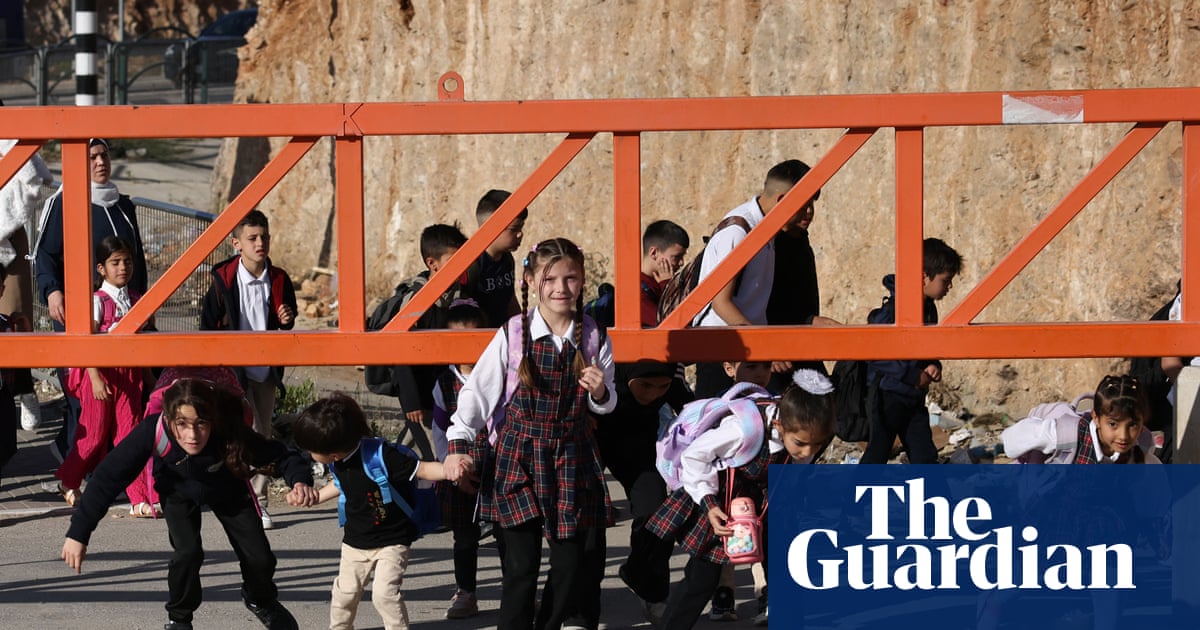I was so moved by Bethan McKernan’s article on her time as the Guardian’s Jerusalem correspondent over the last four years (‘I worried I might start finding it normal. But I never did’ – what I learned as the Guardian’s Jerusalem correspondent, 29 May). Her experience of feeling a “maddening cognitive dissonance” in Tel Aviv/Jaffa from seeing people “out and about, doing pilates, walking their dogs, as if everything was fine – when just 50km down the road, on the same stretch of the Med, was an open-air prison” is exactly how I felt when I first visited Jerusalem in 2018 after spending time in the West Bank.
I had decided to take my young family there to show them where my Palestinian father grew up under the British Mandate and see if we could find the home he’d lost in 1948. But I was also keen to ensure my children had a balanced view and understood the whole story, educating them about what the Jewish people had been through.
I had come from Jordan via Bethlehem and Ramallah and been so touched by the generosity of the Palestinians I met who, despite living under very difficult conditions, were such wonderful hosts, inviting my family in to chat and share delicious home-cooked food. But arriving in lush Jerusalem from the barrenWest Bank, where Palestinians are treated like cattle, penned in by the wall and multiple checkpoints, was a striking contrast. After walking a few steps through the centre of Jerusalem with its gleaming shops, surrounded by people ostensibly living their best life, I broke down and cried at the injustice of it all.
Growing up in London, people would sometimes tell me they were going on holiday toIsrael. “Have you been?” they would ask. “It’s wonderful.” They didn’t know my background, but I was left shocked that they only saw one side of it.
What I loved about Bethan’s article is that over the last four years she has immersed herself in life there and deeply felt the positions of both Israelis and Palestinians. If we are going to make progress and reach a fair outcome, we have to put ourselves in each other’s shoes and deeply understand each other’s experiences.Alexandra LucasLondon
Jonathan Freedland describes Hamas’s actions on 7 October 2023 as “slaughter”, while Israel’s bombardment of Gaza ever since is just “killing” Palestinians (A biblical hatred is engulfing both sides in the Gaza conflict – and blinding them to reason, 23 May). The difference in outrage portrayed in these words reflects the lack of equivalence between the life of an Israeli and that of a Palestinian which has been at the heart of the conflict since the start.Chris MatthewsLondon
Have an opinion on anything you’ve read in the Guardian today? Pleaseemailus your letter and it will be considered for publication in ourletterssection.
